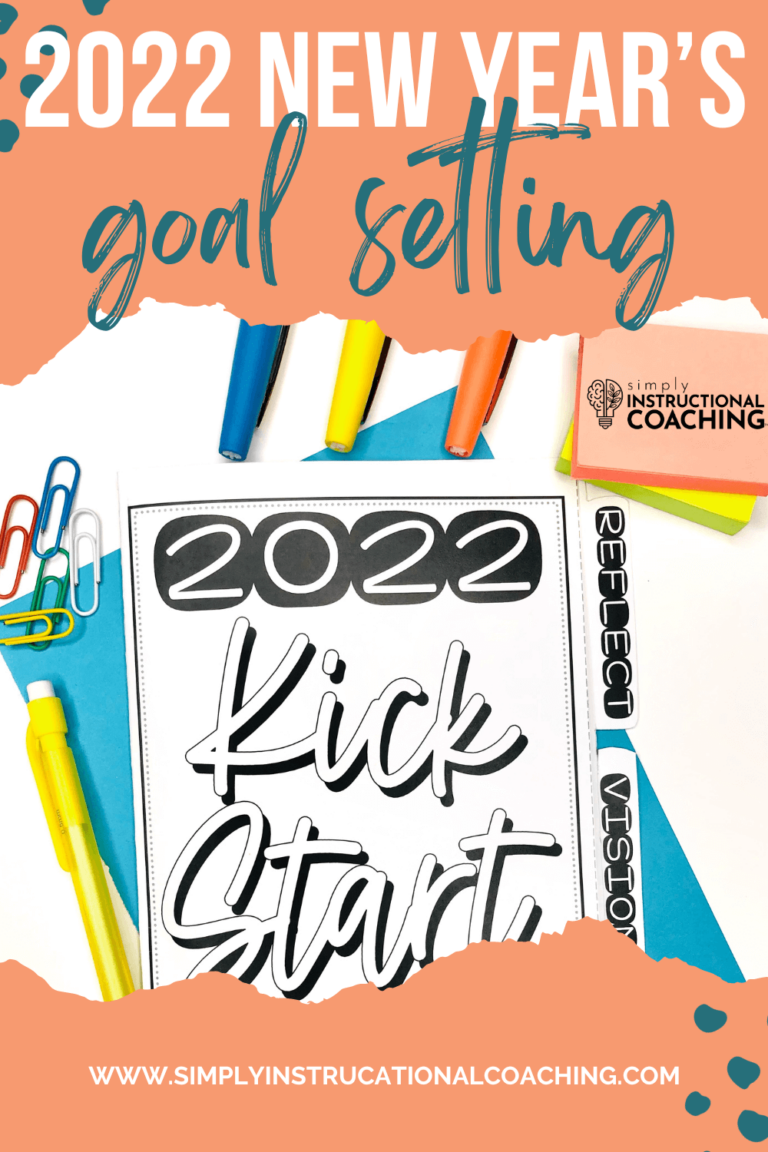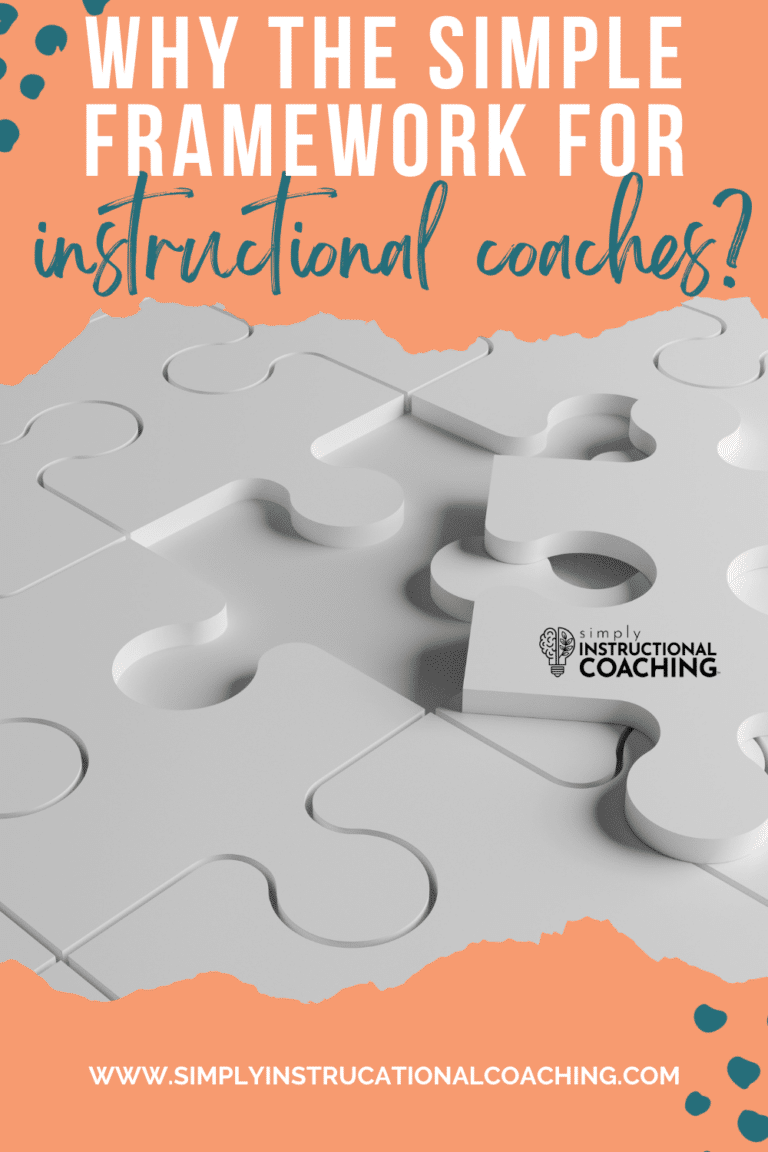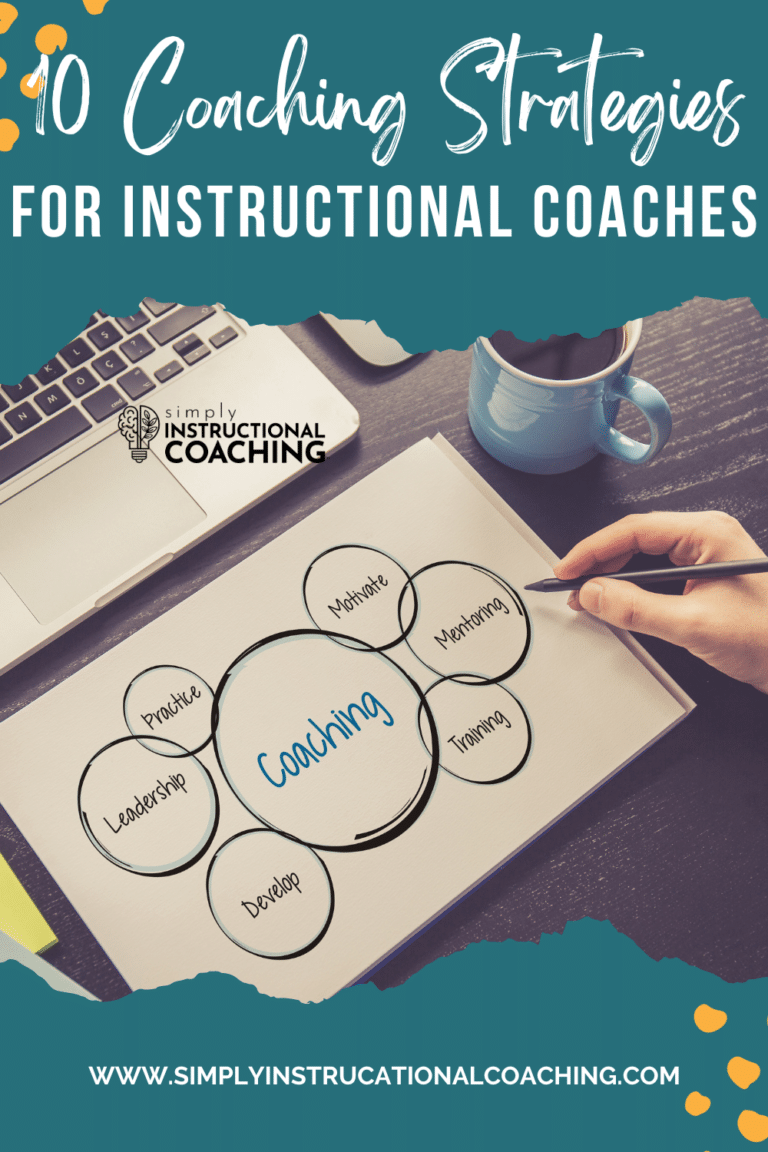Time Management for Instructional Coaches ~ What Should I be doing?
By Nicole S. Turner
Share This Post:
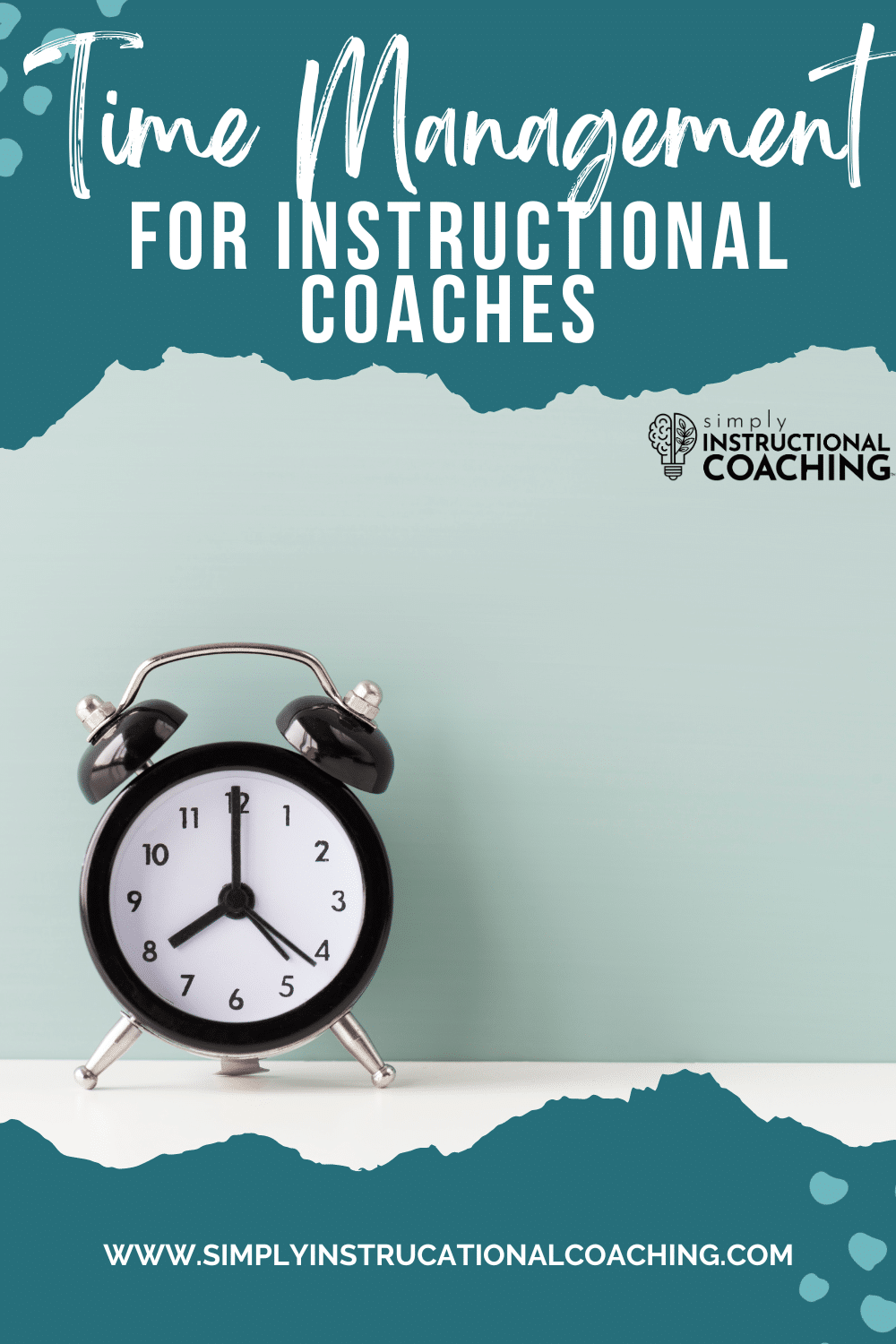
One of the biggest struggles in life is not having enough time in a day. This holds true when you are an instructional coach. Upon first getting hired or first getting into the field, the amount of time, paperwork, and snapshot was probably overwhelming and maybe it still is. Time management is one of the most difficult aspects of being an instructional coach and often times we find ourselves asking: what should I be doing?
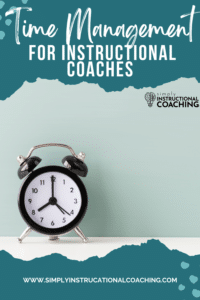
If you find yourself asking “What should I be doing?” you may want to look at how you could be using your time more effectively.
I have to admit…
When I first became an instructional coach I was ALL OVER THE PLACE. I was trying to get things done and trying to not forget to complete something, answer an email or attend a meeting. It became very clear that I needed to create a system to manage my time more effectively.
My system involved me dedicating a day to planning. Mapping out each moment of the day and making sure that I included time to work and time to meet with others.
When I was in the classroom, I planned my lesson plans on Sunday afternoons. This was the time my children would do homework, I would wash clothes and get to the nuts and bolts of preparing for my week.
When I became a coach, I thought those days were over…
But as I figured out, I traded lesson planning for weekly schedule planning on Sunday afternoons.
So to get better time management skills, I developed the steps below.
Step 1: Weekly Reflections & Goal Setting
One of the first steps in getting better at time management is making a plan. But to start the plan you have to reflect on where you been to know where you are going.
To start your plan, look at what you accomplished the previous week. Did you do all that you set out to do? If you didn’t why not? What would you change about that week? How can you make it better?
After your reflection, it’s time to set goals for yourself.
Examples of goals may include:
- Introduce myself to each teacher by the second week of school.
- Identify teacher concerns by the fourth week of school.
- Initial snapshot complete by the end of the first month of school.
- Observe each teacher once a week.
- Input data two days after observing a teacher.
- Reflect on my effectiveness weekly/monthly
By setting goals for yourself, you are deciding what is important to you as a coach. Everything else you do can be centered around working towards those goals.
Step 2: Making a Calendar/Schedule
One of the hardest things to do as an instructional coach is find time in the day for everything that you have to get done. A great way to do this is by creating calendar. On this calendar you can schedule out the following for each teacher on a master calendar.
- Your baseline snapshot
- Pre-snapshot meeting
- When you model the strategy
- Debrief and planning meeting
- Collaborative teaching hour and debriefing time.
- Snapshot and feedback time.
Now you have to take into account the teacher has a schedule too, so you may have to give them options. Giving teachers two to three options will help build a positive relationship with them, thus making your life easier.
Step 3: Staying Organized
Instructional coaching can be a career that environmentalist trying to save the trees frown upon because it takes a lot of paper to make sure you are being effective. First of all, you are probably going to have many versions of your calendar from step 2. Second of all you need to keep track of your time in the classroom.
To help keep track of where you were, who you saw, what you talked about, and what your end goals is as a team, you will want to take careful notes. One way to do so is by keeping several different types of trackers such as:
Teacher-Coaching Goals
- This tracker has a place for your term goals, asks if the goal was met, requires you to provide evidence, and has space for reflection.
Teacher Coaching Tracker Sheet
This handy tool is a great way to keep track of quick meetings. On this tracker you would document what the meeting was about, what the focus for the teacher will be, the evidence that supports the change you’re looking for, and an outline of the next steps.
Monthly Coaching Cycle Tracking Sheet
- This tracking sheet helps you keep track of when your cycle begins and ends for each teacher, what the overall goal was, and what was accomplished at all the meetings you made on your monthly calendar.
Weekly Coaching Communication
- Since you decided to observe each teacher weekly, you want to make sure you keep track of any communication you have. On this simple tracker, you would describe what the instructional focus was and any change or progress you observed in the quick visit.
It’s important to keep track of all of your snapshots and conversations for a variety of reasons. One, it will make your job infinitely easier. Being organized and knowing what you have discussed will help create less confusion and make you a more effective instructional coach. In addition, if a teacher ever “has a bad day” or maybe doesn’t agree with some of your goals and tries to cause a fuss, you have paperwork to back up the decisions and suggestions that you made.
Time management is a difficult part of life. With only 24 hours in a day it can seem like we never get a chance to rest. But, if you follow the guide above and get a little help creating your trackers from Educator’s Caravan, you can be more organized and have more time during the day leaving you less stressed.

